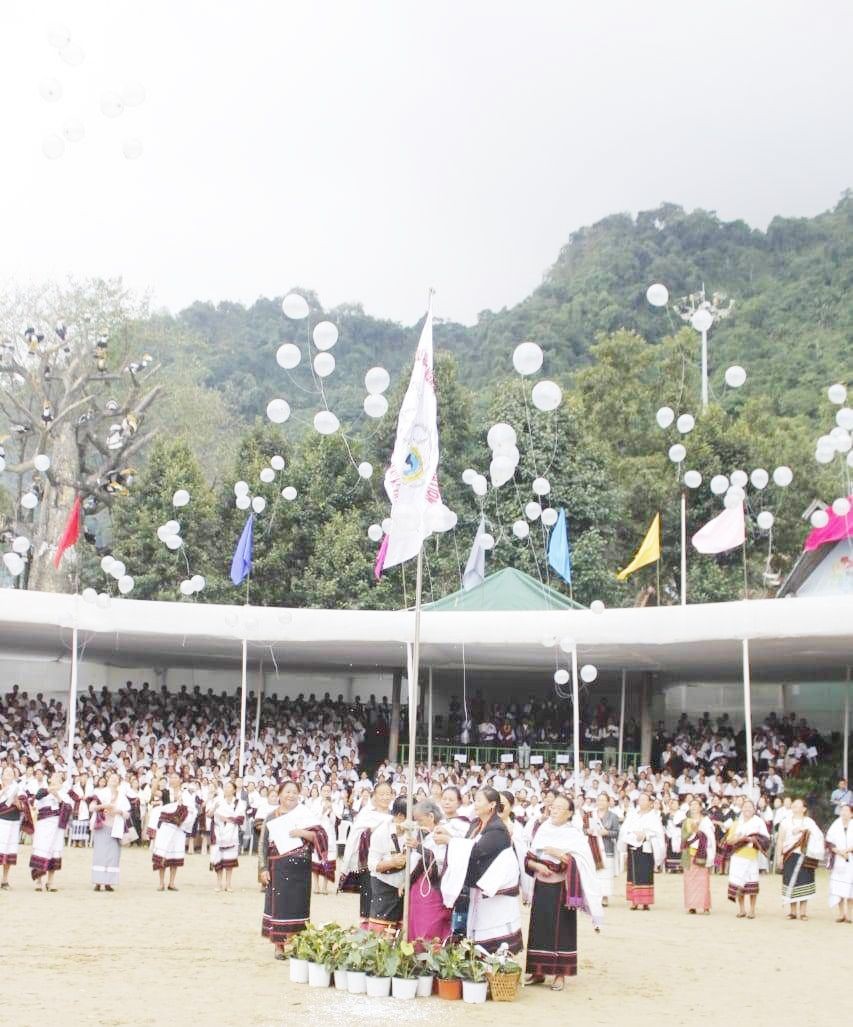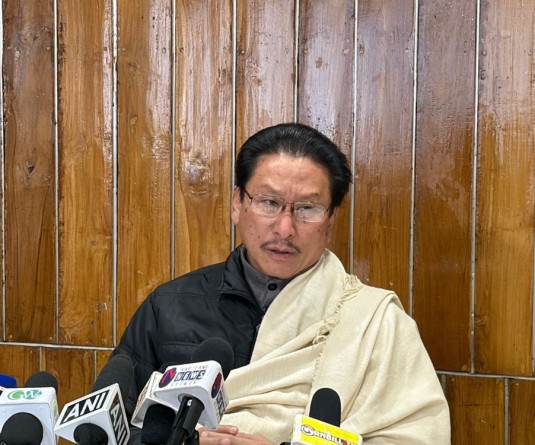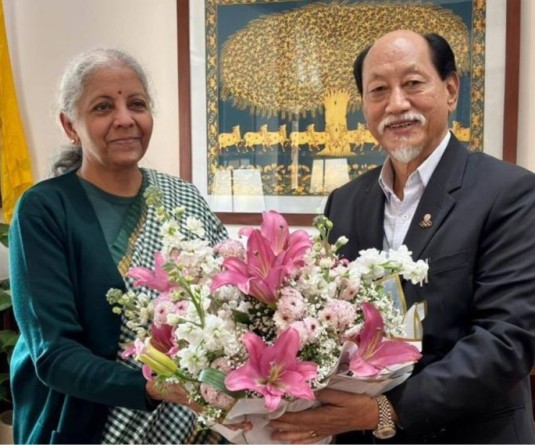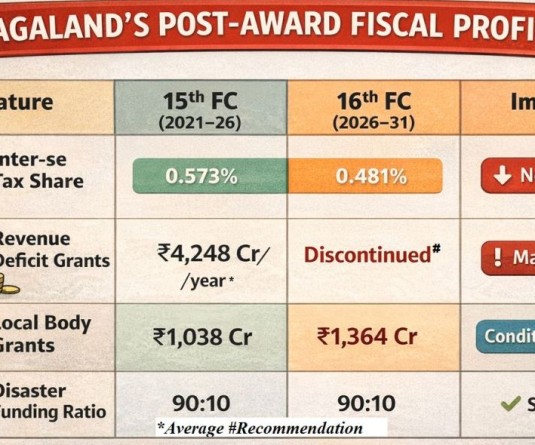Neisevoü Kirha, SAWO Founding Leader hoisting the Jubilee Flag of the Southern Angami Women Organization Silver Jubilee at Naga Heritage Village, Kisama on October 13. (Morung Photo)

Southern Angami Women Org celebrates 25 years of existence
Morung Express news
Kohima | October 13
The Southern Angami Women Organization (SAWO) today celebrated the Silver Jubilee at Naga Heritage Village, Kisama.
Chozhüle Kikhi, General Secretary, Angami Women Organization (AWO) & Rtd. Deputy Director, Horticulture Department on the theme, ‘U krü zhorüli keviko keyieshü khe’ (Pass on the good traditions of our forefathers) mentioned that our elders or forefathers practiced and were accustomed with many good customs, cultures and traditions in their way of life.
Among them were practices of self sufficiency, dignity of labour, farming practices, village administration, and social organization of people.
The speaker said that we believed in a 'God' of supernatural being for which we practiced 'Kenyü' or 'forbidden' to do, menga or shame in doing, being truthful, grateful, generous and living in solidarity with one another were practices that were highly regarded amongst the people in the society. In this regard, were certain practices associated with it.
From the first instance of getting into contact with our people, outsiders usually have second thought when we introduce ourselves as Indians. It is because, she cited, our ways are different ranging from our customs and behaviours, food and language to our religion, culture and traditions.
She elaborated that no one lived with the dependency of another people which came by practicing dignity of labour.
Taking the vivid example of an Angami woman, the speaker said a woman would be awake before sunrise to attend to her household responsibilities, her husband and children, poultry and leave to her field for farming and do the same round after dawn, all with precision and meagre rest.
Self sufficiency as supplemented by the speaker was also displayed in different form of farming practices which included terrace, jhum, jungle and kitchen and poultry farming which would be sufficient to provide for the family.
Recalling that in the past, there was no formal administrative setup like Village council or Village Development Boards that came later and are existing today, she however said, certain members of the group would conduct rituals who would be from among the elderly in the community. As such, the social organization of people existed in groups which categorically were elders, youths, children among others.
Stating “our dress is our identity,” she took the instance of three generations which range from the present old age, elders and the youth today.
Kikhi lamented that for instance during the old age women's generation, she had known the art and craft of weaving from the scratch which would include the raw materials like dye and wool. In the next, the art is minimised to acquiring the raw material from the market. But in the generation of the daughters, the art is lost to lack of time and skills.
In the present day, she opined that life skills development and upgradation was an urgent need of the day to preserve and pass these practices and traditions. She appealed the leaders both policy makers and social leaders to look at preservation initiatives for posterity.
Reflect on the journey
Guest of honour, Er Zale Neikha, MLA & Advisor, Youth Resources & Sports, Government of Nagaland while launching the souvenir urged the SAWO to reflect on the journey, achievement of the 25 Years for the way forward. He asked the women folks to come forward and learn to be upright and steadfast. Reminding that some good age old practices to need preserved and further passed down, Neikha said respect to elders, work culture and dignity of labour were some qualities that women can lead the way.
Medo Yhokha, MLA & Advisor, Technical Education & Election, Government of Nagaland asked the southern Angamis of the not to remain complacent with the resources and blessings bestowed upon our people; but to move beyond conversations and documentations but to take these identities and histories to live it in our approach, narrative and perspective in the present times so that it can passed on to generations.
During the programme, Neisevoü Kirha, SAWO Founding Leader hoisted the Jubilee Flag; Neisevoü Kirha, a founding leader of the Southern Angami Women Organization (SAWO) will turn 95 years this year hails from Jakhama Village.
Her aspiration for the women of the region is to remain united and strong to lead women, and represent their voices and grievances.
In 1997, Zakieviü Kechü led the first office of the SAWO as the President. She pronounced the elder’s blessings and Kerisa Visa, SAWO founding member exhorted the attendance. Pupeiri Pfükha is considered the oldest women in the region, who according to her family members is 120 years. She hails from Kigwema village. Although she had not physically attended the Jubilee, the jubilee seeks her blessings. As significance, the first spoon of the feast was shared after serving her. During the Jubilee, Kevipodi Sophie, President, SAPO delivered greetings.
In 1997, like-minded women of Southern Angami in one accord formed the SAWO in 1997, on October 13 which is also the foundation of the organization, to maintain its dignity, protect and safeguard and move forward for the region. It was earlier called Japfüphiki Women Organization with the motto, ‘Sow the true knowledge.’
SAWO comprises 13 villages of the Southern Angami region. Around 1300 women converged during the jubilee.






